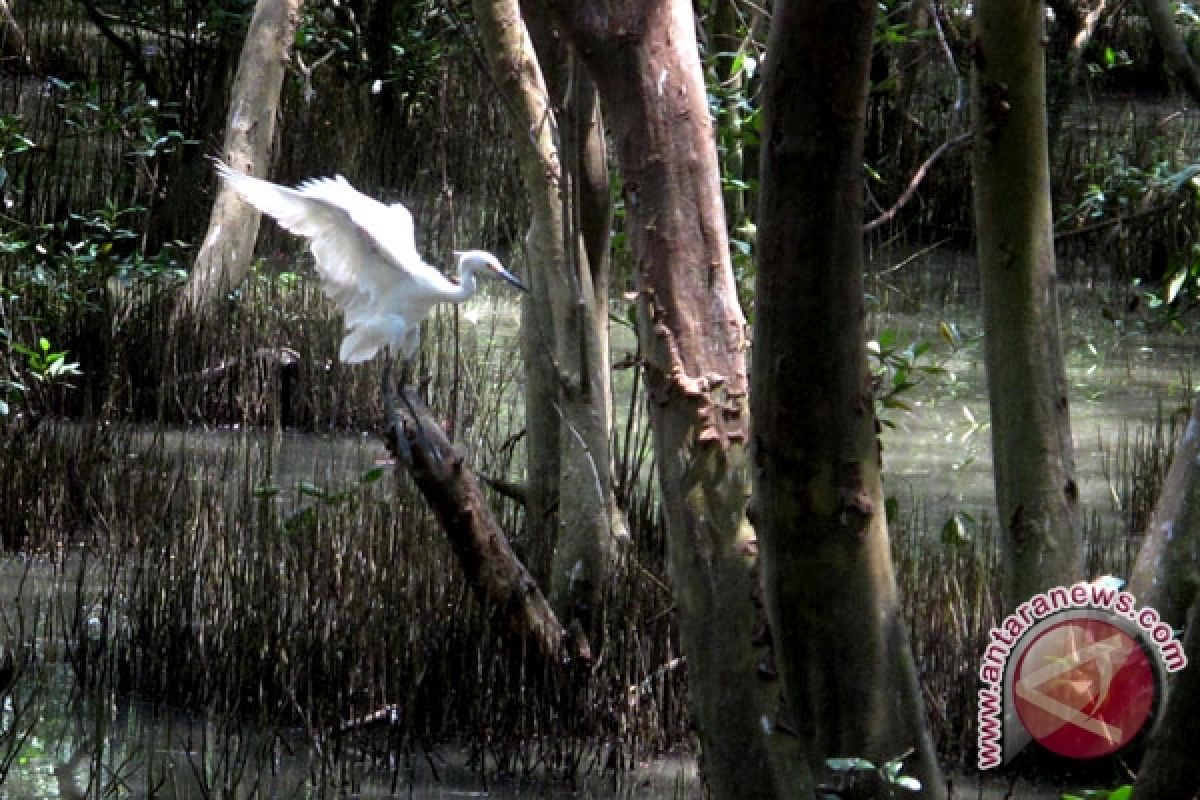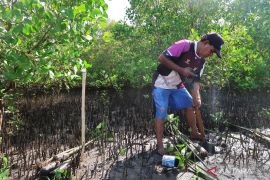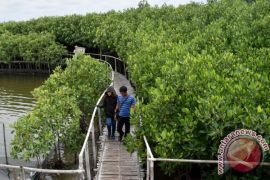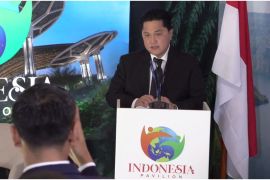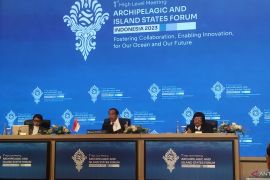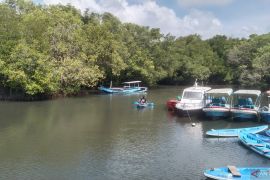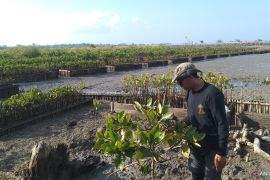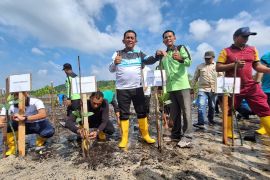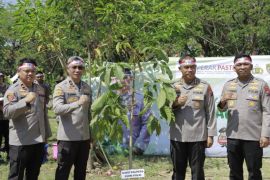"In the near future, 100 thousand mangrove seedlings will be planted along the coast of Ketapang, Air Anyir and Batu Rusa. The activity will involve the local administration, NGOs, students and fishermen," head of BGG field supervisor, Edi Kusnanto said here on Wednesday.
Bangka Goes Green is a social movement which is driven by Bangka Belitung tin industry players with the aim of saving the environment in the region by re-greening the degraded land as well as of helping the farmers and fishermen.
Edie explained, most of the mangrove forests along the coast of Bangka island were damaged, affecting the balance of coastal ecosystems that make the marine biota such as crabs, fish, shrimp and other creatures threatened with extinction.
"During 2010, we had planted 137 thousand mangrove seedlings along the coast which were damaged by tin mining activities," Edi noted.
He said the planting of mangrove will directly impact the catch of the fish and improving the welfare of the families who live at the coast because in addition to holding the coast from the onslaught of waves, mangroves are also home for marine biota to breed.
"Currently, many coastal fishermen are no longer work as fishermen because it is difficult to find fish," Edi said.
According to him, the variety of fish which is usual spawn and breed in the mangroves are now moving to the waters which is more distant and still safe from the pollution of sea water due to mining activities.
However, the level of living mangrove seedlings planted are still quite low due to pests that feed on barnacles leaves and stems of the planted mangrove.
"About 40 percent of the planted mangrove seedlings along the coast died because of pests barnacles attacks," Edi said.
Therefore, the organization continues to make breakthroughs in cooperation with the Bali provincial administration and the Japanese government which is considered successful to anticipate the pest barnacles attack on mangrove seedlings.
"We have been planting mangroves with a method by using bamboo to protect trees and mangrove leaves from pests and the methods are quite successful because most of the planted mangroves can continue to live," Edi added.
Therefore, the local administration and police officers are expected to continue to conduct oversight of tin ore mining on the coast that threaten the sustainability of mangrove forests.
"On one side the tin mining is profitable for the community, but on the other hand it can harm the local people who catch fish for their livelihoods," Edi said.
(T.KR-LWA/HAJM/S012)
Editor: Priyambodo RH
Copyright © ANTARA 2011
